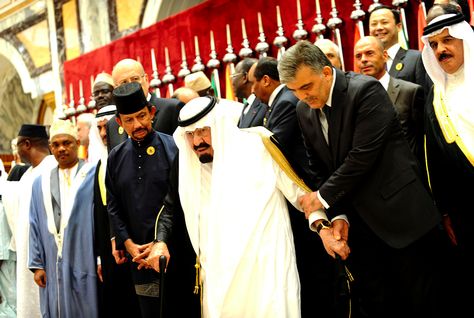TEHRAN: Iran vowed Wednesday it "will not budge an iota" from its nuclear path despite a new UN report hardening suspicions it is seeking atomic weapons, as an Iranian general warned Israel of "destruction" if it launched an attack.
The words of defiance fell while the United States and its allies said they were looking at imposing more sanctions on Iran, and Tehran’s chief ally, China, urged the Islamic republic to cooperate with the UN’s International Atomic Energy Agency.
The IAEA report Tuesday said "credible" evidence existed of Iran working towards making nuclear warheads to fit inside Shahab-3 medium-range missiles.
Iranian officials immediately characterized the report as "baseless" and "politically motivated," and hewing to intelligence provided by Iran’s arch-foe the United States.
President Mahmoud Ahmadinejad told a crowd in western Iran Wednesday in a speech broadcast on state television: "We will not budge an iota from the path we are committed to."
He reiterated that, contrary to the IAEA report, Iran’s nuclear program was exclusively civilian and peaceful in nature, saying "we don’t need the atomic bomb."
His deputy armed forces chief, Brigadier General Masoud Jazayeri, warned however that any sign of Israel carrying out threats to attack Iran’s nuclear sites "will see its destruction."
Jazayeri said in an interview with Iran’s Arabic-language channel Al-Alam that the Israeli nuclear site of Dimona was "the most accessible" target.
But he also stated that "our response would not be limited to the Middle East."
Israeli officials had no immediate reaction to the IAEA report. But Israeli President Shimon Peres said on the weekend the likelihood of an attack on Iran was becoming "more and more likely."
Israeli media last week speculated that the Israeli government was seriously considering an attack on Iran but that a decision had not yet been made.
Amid the hard language in the IAEA report and the threats of Israeli military action, the United States and its allies were talking up the possibility of additional sanctions on Iran.
A senior US official speaking on condition of anonymity said: "We don’t take anything off the table when we look at sanctions. We believe there is a broad spectrum of action we could take."
France’s foreign ministry issued a statement saying "we are prepared to adopt… unprecedented sanctions" should Iran reject cooperation with the IAEA.
A spokeswoman for the European Union’s foreign policy chief Catherine Ashton said the IAEA’s report indicating a "fully-fledged" Iranian nuclear weapons program "seriously aggravates existing concerns."
The 27-nation European bloc was working on "an adequate reaction," spokeswoman Maja Kocijancic said.
Ashton represents six world powers – Britain, China, France, Germany, Russia and the United States – in stalled negotiations with Iran aimed at convincing Tehran to freeze its uranium enrichment activities.
Although China and Russia – which both wield veto power in the UN Security Council – have been reluctant to impose further sanctions on Iran, China on Wednesday urged Iran to show "flexibility and sincerity" in the wake of the IAEA report.
Chinese foreign ministry spokesman Hong Lei said Beijing was still studying the document but called on Iran to "engage in serious cooperation" with the nuclear agency.
Russia was angrier over the report’s release, saying it damaged the chance of renewing the nuclear talks.
The report itself stated that the IAEA had "serious concerns" Iran "has carried out activities relevant to the development of a nuclear explosive device."
Although it stopped short of making an outright accusation of weapons programs, it detailed activities it said showed computer modeling of a nuclear warhead, testing explosives in a large chamber at the Parchin military base near Tehran and studying how to arm a Shahab 3 missile with an atomic warhead.
Iran’s envoy to the IAEA, Ali Asghar Soltanieh, said the allegations were "baseless" and "false."
Iran, he said, "will continue its peaceful nuclear activities. And, just as many other previous claims were proven baseless; this time also they will not bear any results."
Soltanieh accused IAEA chief Yukiya Amano of making a "historic mistake" in releasing the document, which he said displayed "unbalanced, unprofessional and political" behavior on Amano’s part.
